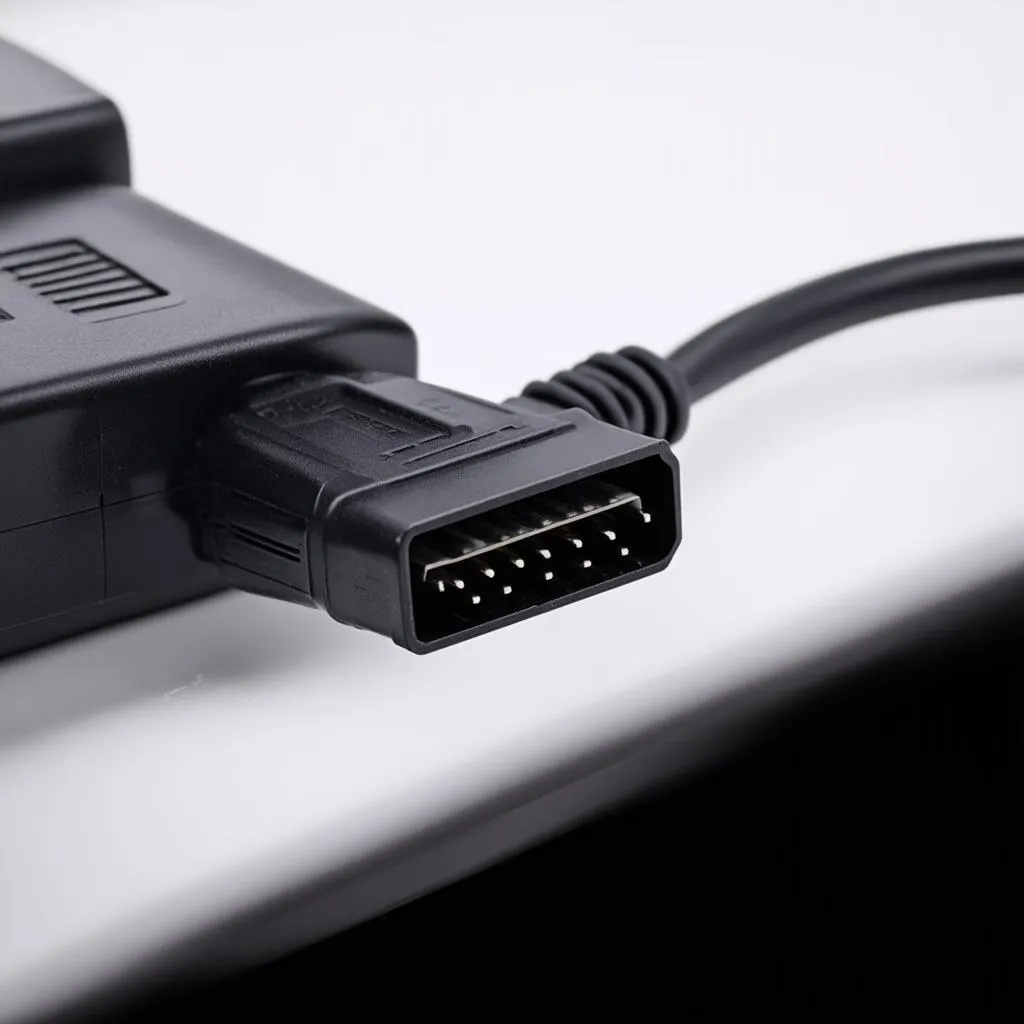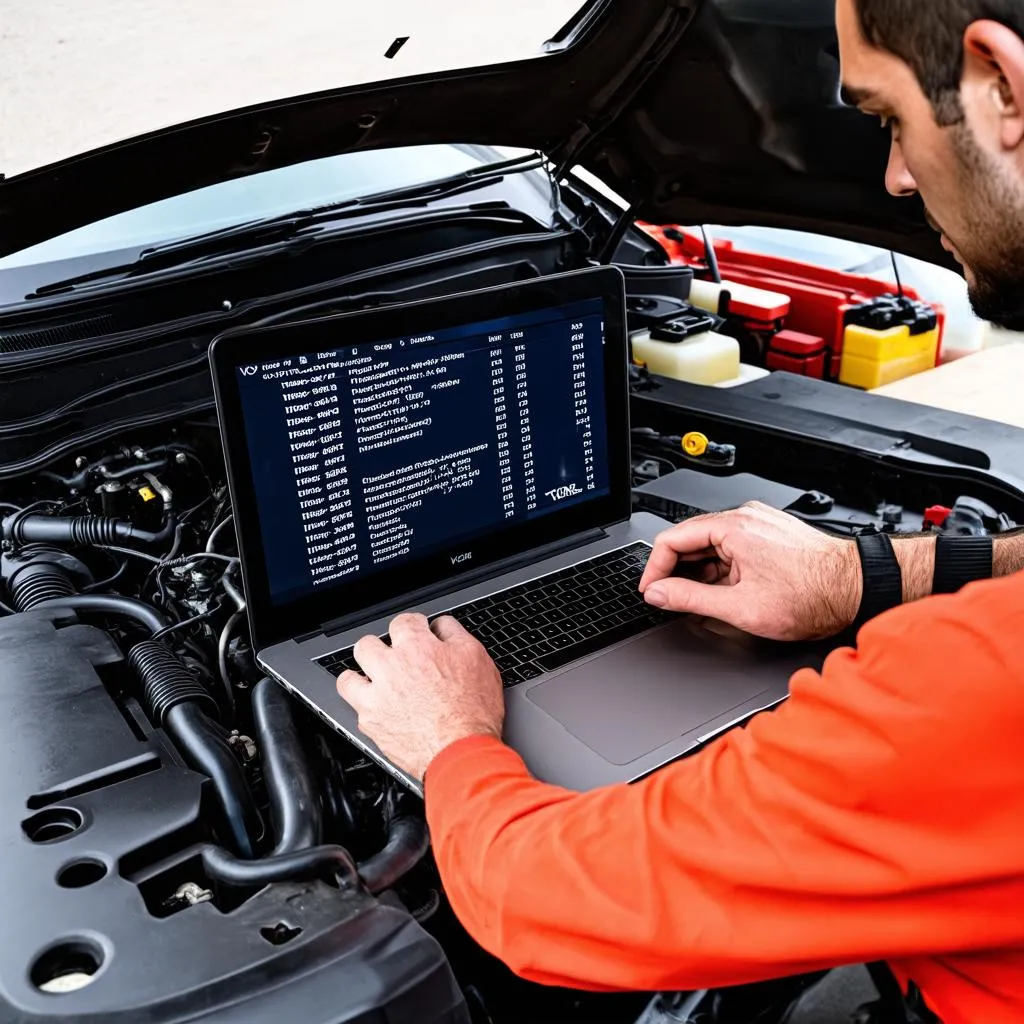If you’re a car enthusiast or a DIY mechanic who loves delving into the intricacies of your vehicle’s computer system, you’ve probably heard of VCDS (Vag-Com Diagnostic System). This powerful software allows you to communicate with your vehicle’s onboard computer, diagnose issues, and even make customizations. But before you can unlock the full potential of VCDS, you need the right cable. This guide will walk you through everything you need to know about “what cables work with VCDS.”
Understanding VCDS Cables: The Crucial Link
VCDS acts as a bridge between your computer and your car’s electronic control units (ECUs). The cable is the physical link that carries the data between these two systems. Choosing the right VCDS cable is essential for a successful diagnosis and customization experience.
Types of VCDS Cables:
1. Genuine Ross-Tech Cables:
Ross-Tech, the developer of VCDS, manufactures its own line of cables. These cables are known for their high quality, reliability, and full compatibility with the software. They often come with added benefits like a licensed copy of VCDS.
2. Third-Party Cables:
Numerous third-party manufacturers produce VCDS-compatible cables. While these cables can be a more budget-friendly option, it’s crucial to choose a reputable brand with positive user reviews. Compatibility and reliability can vary, so thorough research is essential.
3. USB vs. Serial Adapters:
Older vehicles may require a serial adapter to connect to your computer. Modern vehicles generally use USB adapters. Ensure your cable matches your computer’s ports and your car’s diagnostic interface.
Key Features to Consider:
1. Chipset:
The chipset in a VCDS cable determines its compatibility and performance. Look for cables with genuine FTDI or Silicon Labs chipsets for the best results.
2. Build Quality:
A durable cable with quality construction will withstand the rigors of regular use. Check for features like reinforced connectors and strain relief.
3. Length:
Consider the length you need to comfortably connect your computer to your vehicle’s diagnostic port, typically located under the dashboard.
4. Latency:
Lower latency ensures faster communication between your computer and your car, resulting in a smoother diagnostic experience. Genuine Ross-Tech cables are known for their low latency.
Common Questions About VCDS Cables:
1. Can I use any USB cable with VCDS?
No, standard USB cables won’t work. You need a specialized cable with the appropriate electronics and chipset to translate communication between your computer and your car’s ECUs.
2. Are cheaper VCDS cables worth it?
While budget-friendly options exist, be cautious. Some cheaper cables may use lower-quality chipsets or have compatibility issues, potentially leading to unreliable diagnoses or even damaging your car’s electronics.
3. Do I need a different cable for different car models?
In most cases, a single VCDS cable can be used across various makes and models within a specific car manufacturer (e.g., Volkswagen, Audi, Seat, Skoda). However, there might be exceptions for older or newer models, so it’s always best to check compatibility.
4. Where can I buy a reliable VCDS cable?
Reputable online retailers specializing in automotive diagnostic tools are your best bet. Look for sellers with positive customer feedback and clear information about the cables they sell. Cardiagtech offers a variety of quality diagnostic tools, including VCDS cables, to meet your needs.
 VCDS Cable
VCDS Cable
Tips for Choosing the Right VCDS Cable:
- Determine your budget: Set a realistic budget, keeping in mind that investing in a quality cable can save you headaches in the long run.
- Research thoroughly: Read reviews, compare features, and look for cables with proven compatibility.
- Consider your needs: If you plan on using VCDS frequently or for advanced modifications, investing in a genuine Ross-Tech cable is a wise choice.
- Check for updates: Ensure the cable you choose is compatible with the latest version of VCDS.
 Mechanic Using VCDS
Mechanic Using VCDS
Conclusion:
Choosing the right VCDS cable is crucial for a successful and rewarding diagnostic experience. By understanding the different types of cables, key features, and potential compatibility issues, you can make an informed decision. Remember, investing in a quality cable is an investment in your ability to understand, maintain, and customize your vehicle.
If you have any further questions or need personalized guidance in choosing the right diagnostic tools for your needs, don’t hesitate to contact the experts at CARDIAGTECH. We’re here to help you make the most of your automotive passion!
